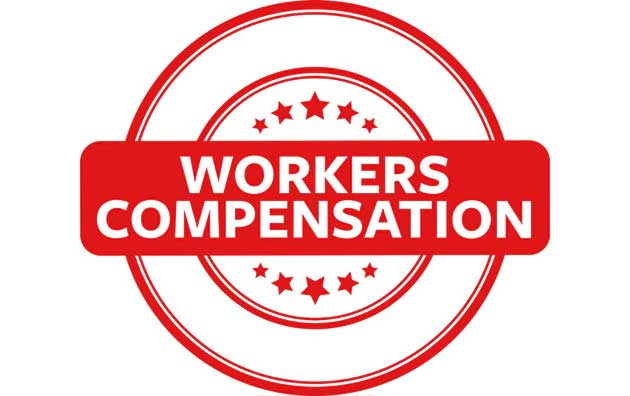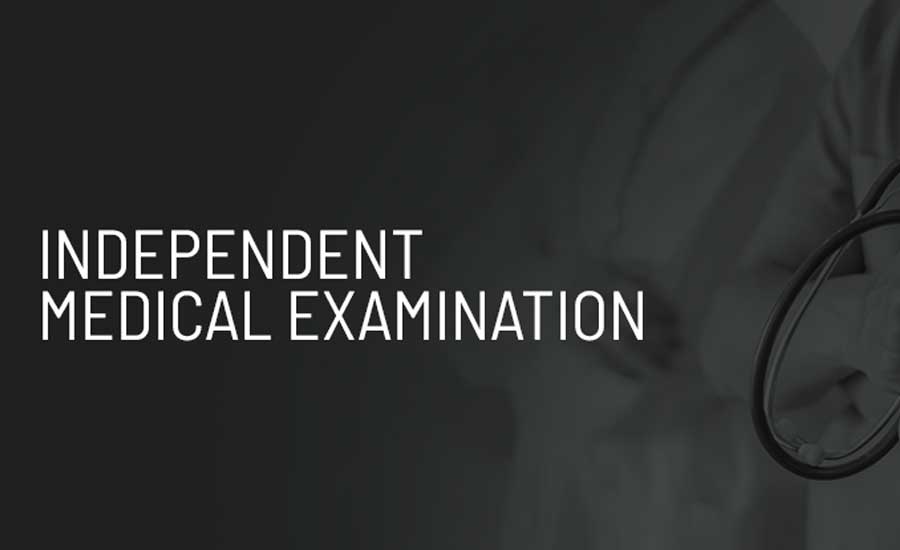How Do I File an Illinois Workers Compensation Claim?
7066931124 • November 5, 2022
Illinois Workers Compensation Claim
An Illinois Workers Compensation claim
is started by the injured worker or his or her lawyer formally filing an application for adjustment of claim with the Illinois Workers Compensation Commission pursuant to the Illinois Workers Compensation Act.
Before filing an Illinois Workers Compensation claim, the injured workers or their workers compensation lawyers must first determine whether the Illinois Workers Compensation Statute governs the injury. This includes an analysis of whether the Illinois Act is the proper jurisdiction, whether the benefits are covered by the Illinois workers compensation system, whether some other federal law or act governs the injury of the type of worker, and whether the nature of the injury is covered by the Illinois Workers Compensation Act. Federal Workers Acts govern some federal workers. Some classifications of injured workers, such as seamen, dock workers, railroad workers and federal workers are not governed by the state of Illinois Workers Compensation Act.
Jurisdiction under the Illinois Workers Compensation Act is found generally in these injuries: 1. The injured workers contract was formed in the state of Illinois; 2. The work accident occurred in the state of Illinois; or, 3. The employer is principally located in the state of Illinois.
The types of benefits covered by the Illinois Workers Compensation Act, which can be collected by the injured workers or his workers compensation attorneys include: 1. Medical benefits for reasonable and necessary medical care; 2. TTD - temporary total disability; 3. TPD- temporary partial disability; 4. PPD - permanent partial disability; 5. PTD - permanent total disability; 6. Death benefits including funeral expenses; 7. Wage differential or diminished wage earner benefits; 8. Statutory loss benefits; and 9. Vocational rehabilitation or maintenance benefits.
The Illinois Workers Compensation Act is a state based system that applies to injured workers in Illinois claims. Jurisdiction of the Illinois Workers Compensation Statute reaches to out of state work injuries if the contract for hire was made in Illinois. Certain Illinois workers claims may be governed by other statutes. You should consult an experienced Illinois Workers Compensation law firm if you have questions about which statutes apply to the work injuries. If more than one statute governs, then an experienced Illinois Workers Compensation Attorney can advise you under which statute provides you the best remedy or damages for your injury.
Some work injuries may be governed by the federal workers compensation statutes.
FELA - Federal Employees Liability Act governs injuries on railroads by railroad workers who can sue their employer for negligence.
FECA - Federal Employees Compensation Act governs work injuries of a wide range of federal employees.
JONES ACT - the Jones Act governs injuries by seamen in navigation of ships and vessels in the ocean, rivers, and waterways.
LONGSHORE AND HARBOR ACT - governs work injuries of dock workers and port employees who are not seamen.
Each of these systems have their own workers compensation claim filing requirements and statutes of limitations.
The steps to follow in filing an Application for Adjustment of claim under the Illinois Workers Compensation statute are published on the Commission website, as follows:
1. Complete the application for adjustment of claim form.
2. Answer all questions on the application for adjustment form. Include description of accident, body part injured, and nature of the injury.
3. Complete the proof of Service section on the back of the form, including the employer’s name and address. Sign and notarize your signature.
4. Mail or deliver a copy to your employer.
5. Send or deliver 3 copies of the completed and signed application to the Illinois Workers Compensation Commission.
6. Keep a copy for your records.
The Illinois Workers Compensation Act, contains an Illinois workers compensation fraud statute which makes it unlawful file a false or fraudulent workers compensation. The Commission fraud unit is in charge of fraudulent claims.
If you have any questions about how to file a workers compensation claim in Illinois, contact an experienced Illinois Workers Compensation attorney. Ron D. Coffel is an Illinois Workers Compensation attorney with nearly 35 years of experience handling Illinois work injury cases.
Before filing an Illinois Workers Compensation claim, the injured workers or their workers compensation lawyers must first determine whether the Illinois Workers Compensation Statute governs the injury. This includes an analysis of whether the Illinois Act is the proper jurisdiction, whether the benefits are covered by the Illinois workers compensation system, whether some other federal law or act governs the injury of the type of worker, and whether the nature of the injury is covered by the Illinois Workers Compensation Act. Federal Workers Acts govern some federal workers. Some classifications of injured workers, such as seamen, dock workers, railroad workers and federal workers are not governed by the state of Illinois Workers Compensation Act.
Jurisdiction under the Illinois Workers Compensation Act is found generally in these injuries: 1. The injured workers contract was formed in the state of Illinois; 2. The work accident occurred in the state of Illinois; or, 3. The employer is principally located in the state of Illinois.
The types of benefits covered by the Illinois Workers Compensation Act, which can be collected by the injured workers or his workers compensation attorneys include: 1. Medical benefits for reasonable and necessary medical care; 2. TTD - temporary total disability; 3. TPD- temporary partial disability; 4. PPD - permanent partial disability; 5. PTD - permanent total disability; 6. Death benefits including funeral expenses; 7. Wage differential or diminished wage earner benefits; 8. Statutory loss benefits; and 9. Vocational rehabilitation or maintenance benefits.
The Illinois Workers Compensation Act is a state based system that applies to injured workers in Illinois claims. Jurisdiction of the Illinois Workers Compensation Statute reaches to out of state work injuries if the contract for hire was made in Illinois. Certain Illinois workers claims may be governed by other statutes. You should consult an experienced Illinois Workers Compensation law firm if you have questions about which statutes apply to the work injuries. If more than one statute governs, then an experienced Illinois Workers Compensation Attorney can advise you under which statute provides you the best remedy or damages for your injury.
Some work injuries may be governed by the federal workers compensation statutes.
FELA - Federal Employees Liability Act governs injuries on railroads by railroad workers who can sue their employer for negligence.
FECA - Federal Employees Compensation Act governs work injuries of a wide range of federal employees.
JONES ACT - the Jones Act governs injuries by seamen in navigation of ships and vessels in the ocean, rivers, and waterways.
LONGSHORE AND HARBOR ACT - governs work injuries of dock workers and port employees who are not seamen.
Each of these systems have their own workers compensation claim filing requirements and statutes of limitations.
If an injured worker determines that the state of Illinois Workers Compensation Act governs the work injury, then under Illinois Workers Compensation laws, the workers compensation claim is initiated by formally filing an application for adjustment of claim. This form can be downloaded from the Illinois Workers Compensation website.
The steps to follow in filing an Application for Adjustment of claim under the Illinois Workers Compensation statute are published on the Commission website, as follows:
1. Complete the application for adjustment of claim form.
2. Answer all questions on the application for adjustment form. Include description of accident, body part injured, and nature of the injury.
3. Complete the proof of Service section on the back of the form, including the employer’s name and address. Sign and notarize your signature.
4. Mail or deliver a copy to your employer.
5. Send or deliver 3 copies of the completed and signed application to the Illinois Workers Compensation Commission.
6. Keep a copy for your records.
The Illinois Workers Compensation Act, contains an Illinois workers compensation fraud statute which makes it unlawful file a false or fraudulent workers compensation. The Commission fraud unit is in charge of fraudulent claims.
If you have any questions about how to file a workers compensation claim in Illinois, contact an experienced Illinois Workers Compensation attorney. Ron D. Coffel is an Illinois Workers Compensation attorney with nearly 35 years of experience handling Illinois work injury cases.

For a disease to be recognized as an occupational disease under the Illinois Occupational Disease Act , the connection of the disease to the workplace is proved by establishing a link between the exposure to the alleged disease causing substance and the work activities of the contracted worker. The best Illinois workers compensation and occupational disease lawyers will know that there is a higher incidence or frequency of disease contraction and disorders in certain occupations. The disease or illness, in higher incident type employments are considered “germane” to certain types of workers in this occupations. What follows is a list of some occupational diseases; Coal workers pneumoconiosis . This obstructive lung disease is coming among underground coal miners who are exposed to dusty conditions in the coal mines. Meat cutters tendon disorders . These are common upon meat cutters who must us various joint postures in cutting meat. Electricians tendon disorders, nerve entrapments, trigger fingers, joint dysfunction, and asbestos exposures. Pipe fitters and industrial plumbers, tendon disorders, asbestos exposures, and chemical exposures to compounds and glue substances. Firefighters, EMT, and first responders : post traumatic stress disorders, infectious disease exposures from emergency treatment. Hearing loss and tinnitus is common among factory workers and among workers who are exposed at work to loud noise of sufficient level and duration. In 2010, a new rare disease of bronchialitis obliterates (cement lung) was recognized as an occupation disease among workers who inhaled fumes of popcorn butter flavoring. Asbestos exposure is a known cause of lung diseases. Chemical exposures are a known cause of asthma and lung diseases and skin diseases such as dermatitis. Cancer and other lung diseases are common in workers exposed to asbestos. There is no specific limitation on what diagnosed disease constitutes an occupational disease under Illinois law. If you have contracted a disease and suspect it may have been caused by exposures at work, then follow the steps in our section “What to do if you contract an occupational disease.” Ron D Coffel is a peer reviewed workers compensation lawyer that has been awarded the distinction of leading lawyer that regularly handles Illinois workers compensation and occupational disease claims in Illinois.

Generally, the employee must file a workers compensation claim within 3 years after the injury, death or disablement, or within 2 years of the last payment of temporary total disability of a medical bill, whichever is later. In the event of minority, the statute does not start until the minor reaches the age of 18. A disability may toll the statute to extent it beyond these dates. The Illinois Administrative Code establishes different deadlines for some specific conditions. Asbestos exposure must be filed within 25 years of the last date of exposure. If the injury is fatal, the employee's representative must file within three years of the death, or within two years of the last date of payment of compensation.

The Workers Compensation Act requires the employer to pay for all medical care that is causally related to the injury that resulted in the claim, including: Any care that is required to diagnose, relieve, or cure the effects of the injury; Any first aid, and/or emergency treatment required as a result of the injury to the employee; All medical, surgical, and hospital expenses that are incurred by the employee in the course of curing or relieving the employee of the effects of the injury; Any treatment, instruction, or training required to rehabilitate the injured employee physically, mentally, or vocationally, including maintenance costs and incidental expenses.

Temporary total disability is the period of time beginning with the injury and ending when the employee reaches maximum medical improvement (MMI). MMI occurs when the employee is as far recovered or restored to his or her previous condition as the injury will allow. You are entitled to payment of TTD for the duration of the temporary total disability.







Share On: